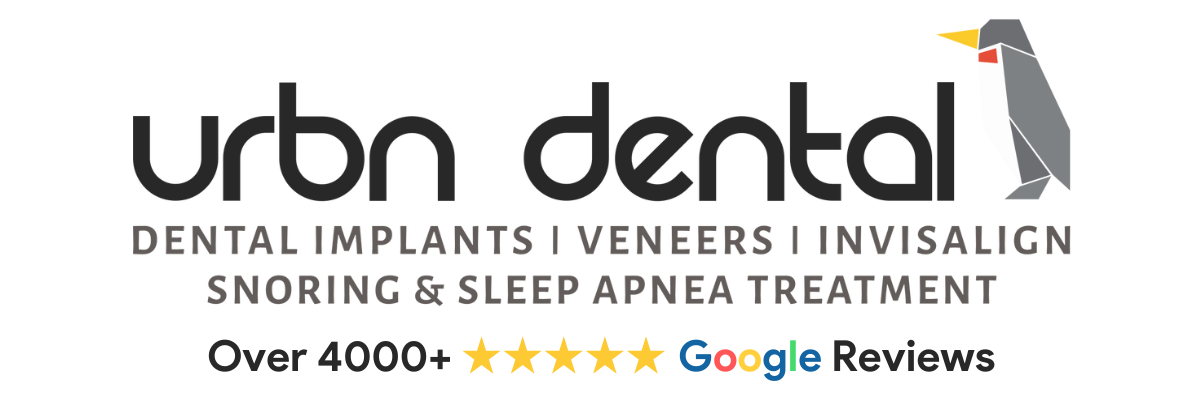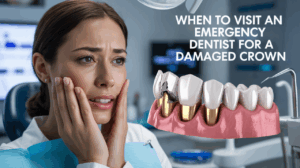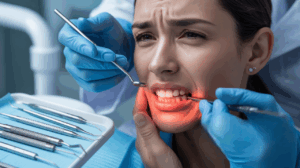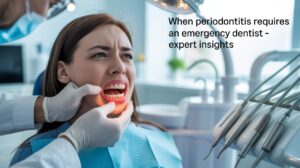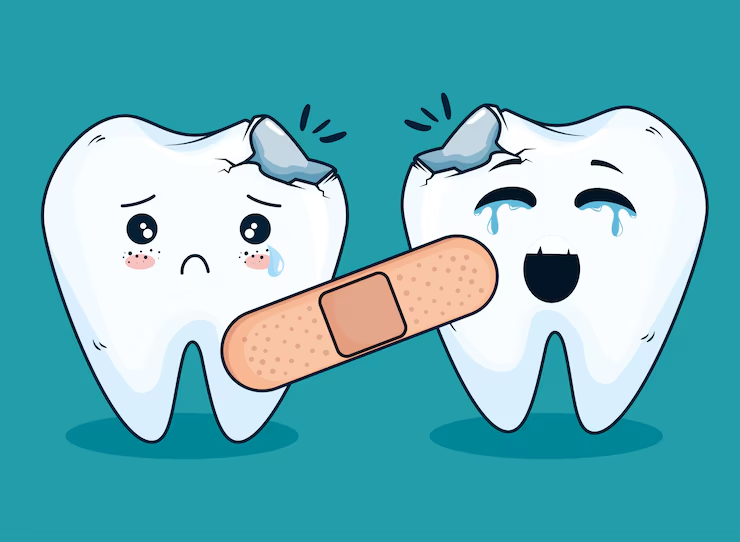
A broken tooth can catch you off guard. It might happen during a meal, while playing a sport, or from a simple tumble. One second you’re okay, the next, you feel a crack, a jagged edge, or pain signaling trouble. If you’ve just broken a tooth, knowing how to act can prevent additional pain, harm, and potential tooth loss.
In this guide, we’ll show you what to do immediately, what emergency treatment looks like, and suggest a good broken tooth emergency dentist in Houston.
Step One: Keep Cool and Check the Damage
When you hear or feel that crack, you might freak out. But first, you need to keep cool. Freaking out makes everything seem worse.
Look at your mouth. Did the tooth chip or split in two? Is it bleeding or hurting? Do you see any swelling?
Step Two: Rinse Carefully
Swish warm salt water in your mouth. This cleans the area and lowers the risk of infection. Skip mouthwash with alcohol, it might sting and dry your gums.
If you find the broken tooth piece, save it. Put it in a clean container with milk or spit. This might help your dentist figure out if they can fix or reattach it.
Step Three: Handle the Pain
Take over-the-counter pain meds if necessary. Ibuprofen can reduce pain and swelling. Stay away from aspirin, as it thins blood and might make bleeding worse.
Hold a cold pack on your cheek near the broken tooth. This will reduce swelling and soothe the area.
If your tooth has jagged edges, use dental wax or sugar-free gum to cover them. This helps you avoid cutting your tongue or cheek.
Step Four: Get in Touch with a Broken Tooth Emergency Dentist
When your tooth breaks at night, don’t wait until morning. Visit Emergency Dentist Houston, an emergency dental clinic that takes walk-ins or offers same-day appointments.
We offer urgent care even on Saturdays, helping you skip hours of needless pain.
Common Reasons for a Broken Tooth
To grasp why this happens and how to stop it from happening again, here are some typical causes:
- Chewing hard foods (ice, nuts hard candy)
- Clenching your teeth while sleeping
- Sports-related injuries
- Untreated tooth decay or weak fillings
- Accidents or tumbles
Even tough teeth can break under stress if decay has made them weak.
Different Types of Broken Teeth and Their Meanings
Broken teeth come in various forms. Some might need a simple filling, while others could require more complex treatment. Here’s what you might be dealing with:
Chipped Tooth
A tiny bit of enamel breaks off. It doesn’t hurt, but it can feel sharp. Dentists often fix it with bonding.
Cracked Tooth
A visible crack runs from the chewing surface downward. It can hurt when you bite. You might need a crown or a root canal.
Split Tooth
The crack splits the tooth in two. It often hurts and might need to be pulled out.
Broken Cusp
A piece of the chewing surface broke off. It doesn’t hurt, but it needs treatment to prevent decay.
Severe Break or Knocked-Out Tooth
This counts as a full dental emergency. Visit our clinic for emergency dental services immediately.
What a Dentist Will Do
Once you get to the clinic, our dentist will first tackle your pain.
The dentist will check your mouth, take X-rays, and select the best treatment plan for your specific needs. The treatment depends on how bad the damage is:
- Dental bonding fixes small chips
- Dental crowns cover bigger breaks
- Root canals are needed if the inside of the tooth shows
- Tooth extraction happens in the worst cases
Our dentist will explain your options, including how to manage pain and recover.
Available on Saturdays
Dental emergencies don’t stick to office hours. This makes it important to find a practice with emergency care on Saturdays from 8 pm to 2 pm in Houston, where weekend injuries often happen.
Emergency Dentist Houston provides treatment on the same day and works on Saturdays, so you don’t have to deal with pain all weekend.
Concerned About Cost? You’re Not Alone
Dental emergencies can cause stress if you’re unsure how you’ll pay for the treatment.
Our clinic offers flexible payment plans and accepts all major PPO insurances for emergency visits.
Call us to discuss your choices before your appointment. Getting treatment early beats waiting and dealing with trickier and pricier issues down the road.
To Prevent Another Emergency
After your tooth gets fixed, take these steps to avoid another break:
- Don’t chew ice or hard stuff
- Wear a mouthguard when playing contact sports
- Fix any cavities or weak fillings
- Ask your dentist about a nightguard if you grind your teeth
Taking small steps now helps keep your smile whole.
Final Thoughts
A cracked tooth can cause pain and stress, but acting fast makes a real difference.
Wash your mouth, ease the pain, and call our reliable broken tooth emergency dentist to protect your smile and prevent lasting harm.
Don’t wait—get expert help from skilled pros who can provide quick relief and put your mind at ease.
Need an Emergency Dentist near me? Choose our clinic that treats your urgent case with care, kindness, and the best tools.
FAQ’s
What should I do if I break a tooth straight away?
Use mouthwash of warm salt water, apply a cold compress to subside the swelling, and use over-the-counter pain relief. If possible, save the remaining broken pieces. Then, contact a broken tooth emergency dentist in Houston for same-day services.
Is a broken tooth a dental emergency?
It indeed does, especially if it induces pain, bleeding, or sensitivity. A broken tooth can expose nerves and lead to infection. The best way to prevent further damage or tooth loss is to visit an emergency DDS near me as soon as possible.
Is a dentist able to correct a broken tooth at once?
In many cases, yes. If the chips are not significant, they can be treated by bonding or smoothing. Severe breaks may require a crown or a root canal. Same-day treatment options for repairs in broken teeth are quite common at emergency dentists, particularly in emergency cases.
What about if I break a tooth on a weekend?
Our Emergency Dentist Houston operates even on Saturdays from 8 am to 2 pm and can address broken teeth within minutes, thereby avoiding additional discomfort and complications.
